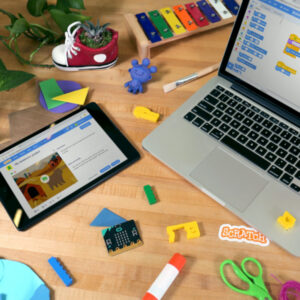 Teachers Network (currently under development) is a collaborative environment for the creation and maintenance of open source curriculum frameworks with initial emphasis on STEM, computer science, and English training. The site will eventually combine electronic learning with social networking, collaboration tools, and a wealth of public education related materials. Designed to be a fun and clean environment where students and teachers can interact with each other while at the same time providing the tools necessary to build an effective online learning environment.
Teachers Network (currently under development) is a collaborative environment for the creation and maintenance of open source curriculum frameworks with initial emphasis on STEM, computer science, and English training. The site will eventually combine electronic learning with social networking, collaboration tools, and a wealth of public education related materials. Designed to be a fun and clean environment where students and teachers can interact with each other while at the same time providing the tools necessary to build an effective online learning environment.
My Teaching
I have been teaching and helping students on a part-time basis since 2010. Areas include English, Math, Business and Critical Thinking subjects. The intent is to combine my teaching experience with my technical and business background to build better learning environments.
Jade Networks Involvement
We conduct all work under the Jade umbrella, utilizing Jade Networks Data Center Services. We will host open-sourced support materials, including student mobile applications, presentation materials, video tutorials, and other digital content, as needed. Below, we outline our vision for the site and the areas we currently focus on.
Online class sales will drive Teachers Network revenue. We will identify additional sources as we refine the business model. Target markets are, at least initially, English speaking markets, namely the United States, UK, Canada, Australia and New Zealand. English being an International language may also open doors to other markets depending on the subject material. TEFL English is one for instance. Certain local resources such as an existing media lab and a basic electronics lab are also at our disposal if and when needed.
Core Subjects and Resources
Most of our efforts as we build this new service are with the design, testing and initial roll-out of basic services. As we don’t have infinite resources the first courses will be in subject areas we are most familiar with: computer science, electronics, IoT and English.
English Training
 We have many years experience in teaching English at all levels and working with student, parents, and training centers. Most of this experience is directly applicable to TN, not only in the area of English training but in how to structure classes and programs for students, groups, and schools.
We have many years experience in teaching English at all levels and working with student, parents, and training centers. Most of this experience is directly applicable to TN, not only in the area of English training but in how to structure classes and programs for students, groups, and schools.
With our direct writing classes, we used the Online Writing Lab for both individual and collaborative writing projects. This included the ability of the teacher and other group members to review and comment on progress. The versioning authoring system allows for version comparison and rollback. It is an invaluable tool for writing classes.
There are many ways to structure classes for English learners and we are evaluating the options and priorities at this time.
Electronics and Computer Engineering
 The Electronics and Computer Engineering (ECE) courses introduce young students to the fields of electronics and computer science. These hands-on, project based STEAM courses not only teach students about the various technologies, but just as importantly, unlock the creative spirit in every student. Courses are designed to be fun and encourage students to engage in “what if” types of questions. Independent exploration and team collaboration is actively encouraged.
The Electronics and Computer Engineering (ECE) courses introduce young students to the fields of electronics and computer science. These hands-on, project based STEAM courses not only teach students about the various technologies, but just as importantly, unlock the creative spirit in every student. Courses are designed to be fun and encourage students to engage in “what if” types of questions. Independent exploration and team collaboration is actively encouraged.
The initial course hierarchy consists of 13 courses across 3 main focus tracks:
- Electronics: basic concepts for the beginner through modern IoT systems. This includes micro-controller and single board computer based design.
- Computer Science: modern programming languages from ScratchJr for the very young learners through object oriented high level languages such as Python and JavaScript for the more advanced students.
- Web Development: introduction and application of HTML/CSS for modern web design for students and adults. Advanced server based topics covered for students who also have the programming (computer science) course prerequisites in later courses.
We are currently designing course kits to compliment the electronics and computer science courses. The first specification of workstation and accessories kits for schools and students include our own packaging of several of the more popular Raspberry Pi OS distributions and compatible hardware. This is currently under review and likely will shift to a more standard mini-pc based solutions as the cost/benefit calculation with RPI based solutions has changed.
Learning Environment
 Teachers Network is a tiered membership site. The free basic membership, like all levels, requires association with a confirmed real person. We enforce this for security and member safety. Different member types exist, the most common being ‘student’, ‘teacher’ and ‘parent’. Each can have different roles, usually tied to a paid subscription. A teacher leading a specific class will have access rights for administrating that class. Likewise students and/or parents signed for that class will have different access and visibility into the class. Members can have access to multiple and different resources with different roles as needed.
Teachers Network is a tiered membership site. The free basic membership, like all levels, requires association with a confirmed real person. We enforce this for security and member safety. Different member types exist, the most common being ‘student’, ‘teacher’ and ‘parent’. Each can have different roles, usually tied to a paid subscription. A teacher leading a specific class will have access rights for administrating that class. Likewise students and/or parents signed for that class will have different access and visibility into the class. Members can have access to multiple and different resources with different roles as needed.
The current working prototype features an active role and permission system, but we disabled the signup system. We turned off the automatic signup system because of overwhelming fraudulent member requests. Identity verification is essential. We cannot support anonymous access due to Internet fraud and the need to protect students, particularly minors. More work is needed in this area.
Learning Management System (LMS)
The Learning Management System (LMS) serves as the core classroom environment. Teachers develop and deliver classes here, creating the online classroom experience. Class resources, including lesson components, supplementary materials, and online meeting tools, reside in the LMS. Teachers assign homework, quizzes, and tests, and handle grading within the system.
We will not develop an LMS from scratch, as it requires an extensive software base. We are currently evaluating several open-source LMS candidates for potential integration into our environment. Numerous issues arise (too many to detail here), so we still consider integrating a non-open-source solution as an option.
Teacher Support

The Teachers Network generates its primary revenue through online class sales. Although TN staff may initially conduct classroom training, this approach does not align with our long-term strategy. Instead, revenue-sharing models among teachers, TN, and potential partners (such as LMS providers, meeting room providers, and others) will fuel growth. Most teachers, not being business-oriented, seek a platform where they can focus on teaching. For them, packaged courses, student management (including student contract management and payments), and electronic payment systems for delivered classes prove essential. Other teachers may prefer to create their own classes for exclusive use or to share with others. We will establish multiple revenue models to accommodate most use cases.
To attract teachers, TN must ensure reasonable class margins for all parties. TN will provide the environment, oversee general promotion, manage student contracts, and handle payment processes for both students and teachers. We need to explore further TN-added services, including sales, student services, and additional teacher promotion strategies.
Student Support
This is an area we are working to better articulate. Need to cover 1-on-1 classes, group classes, course counseling and coordination, parental monitoring and subject material. Of particular importance is teacher accreditation and feedback. There are many wonderful and responsible teachers, but not all fit this description unfortunately. We need a way to evaluate and rate teachers, both initially regularly and over time.
All classes are to be fully transparent and focus ONLY on subject material. NO STUDENT INDOCTRINATION WILL BE ALLOWED UNDER ANY CONDITIONS.
Other Issues
This introductory document omits several issues. The LMS components’ design, their connection to revenue-sharing models, class creation (original content) challenges, and numerous marketing and sales concerns for these services remain unaddressed. Our direct teaching experience provides insight into many of these areas. We have drafted policies, completed initial peer reviews, and started iterations. These steps are critical for the organization’s successful operation, and we are making good progress. However, much work still lies ahead.
Packaged Courses

Developing course materials demands significant time, iteration, and resources. In some cases, creating our own course materials proves highly sensible, especially if we can identify ways to lease these courses to other platforms. Conversely, integrating third-party course materials into our platform offers many advantages. Standardized classes and access to appropriate training materials are crucial. This mirrors how schools currently operate—outside of university-level specialized subjects, educational publishers typically supply course materials like books, class resources, quizzes, and tests. Our strategy in this area requires further refinement, and we must fully understand how it aligns with various revenue models, licensing, and IP protection.
Artificial Intelligence (AI) in Education
Everywhere you look these days people are talking about AI. No marketing or sales campaign dare to not connect whatever they are doing to AI for fear of being out of touch with the modern world. The number of self-appointed AI experts are mind boggling. Most of these ‘experts’ have no idea what the technologies are, direction, or limitations. But that does not matter when one is trying to ‘wow’ customers. You can’t even buy a coffee maker these days without being bombarded by all of this rubbish.
 Does that mean we are anti-AI? Not at all – but it is important to realize that the technologies represent tools that can be used for good or bad. The number of end user tools is huge and growing rapidly. Growth in AI Assistant related areas is huge. Most of this is good, but none of this represents a magic pill that will either save or destroy the world. How we use these tools and recognize the problems that improper use of them represent, the more successful we will be.
Does that mean we are anti-AI? Not at all – but it is important to realize that the technologies represent tools that can be used for good or bad. The number of end user tools is huge and growing rapidly. Growth in AI Assistant related areas is huge. Most of this is good, but none of this represents a magic pill that will either save or destroy the world. How we use these tools and recognize the problems that improper use of them represent, the more successful we will be.
One area we need a clear strategy for us plagiarism from AI sourced material by both students and teachers alike. There are many that believe that AI is a magic wand that will allow computers to do all the work people normally do and we can all just sit back and collect the money. This is of course nonsense. Even if AI was that good (it isn’t, at least yet) then why would anyone pay a person for work they can get done from an independent bot? Our experience in using AI bots for doing technical research has been very helpful, but not without errors. The old computer science concept of GIGO – Garbage In, Garbage Out most definitely applies to most AI models.
As educators our focus must remain on teaching concepts and skills for our students that prepare them for a career and long term employment. AI Prompt Engineering is important to understand, however MUST never become the focus for educators trying to help students. Class plans, materials and other teaching materials need review for accuracy and plagiarism. The same applies to student material. There are businesses everywhere these days it seems to help people ‘create’ more and more AI-generated content. And almost as many companies now starting to appear to detect such content.
Our experience has been that AI is a great tool when used for doing research, regardless of field. It is not always completely accurate, but is a massive time saver in getting a research project going. In the market (where people work), those most vulnerable are those who provide the lowest level of input to problem solving. Those who understand big picture issues and how to evaluate and put the pieces together will continue to have a bright (brighter?) future with the assistance of AI tools. These are the people we need to be educating and preparing for industry.
Notes:
- Images: review existing slide shows and create new ones. Remove all old page builder and slideshow plugins.
- Image possibilities: maker / electronic components, scratch, robot car, classroom, lab
- Need new logo
- The TN site needs cleanup and fixing as well as full content review
